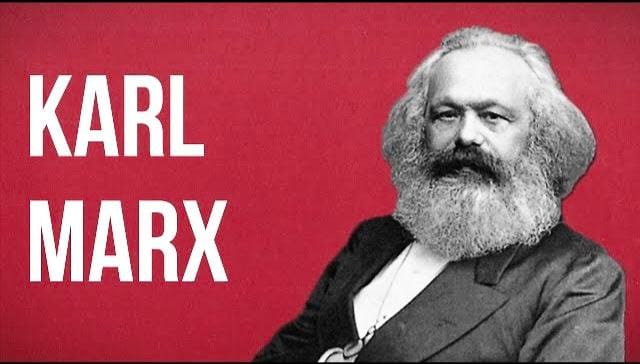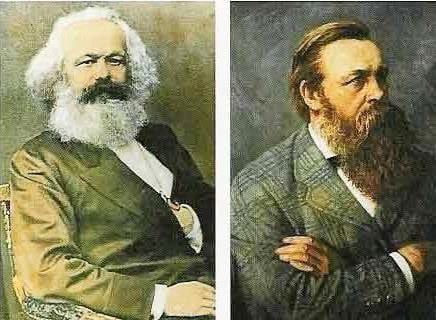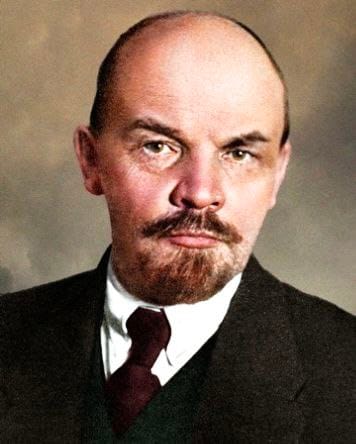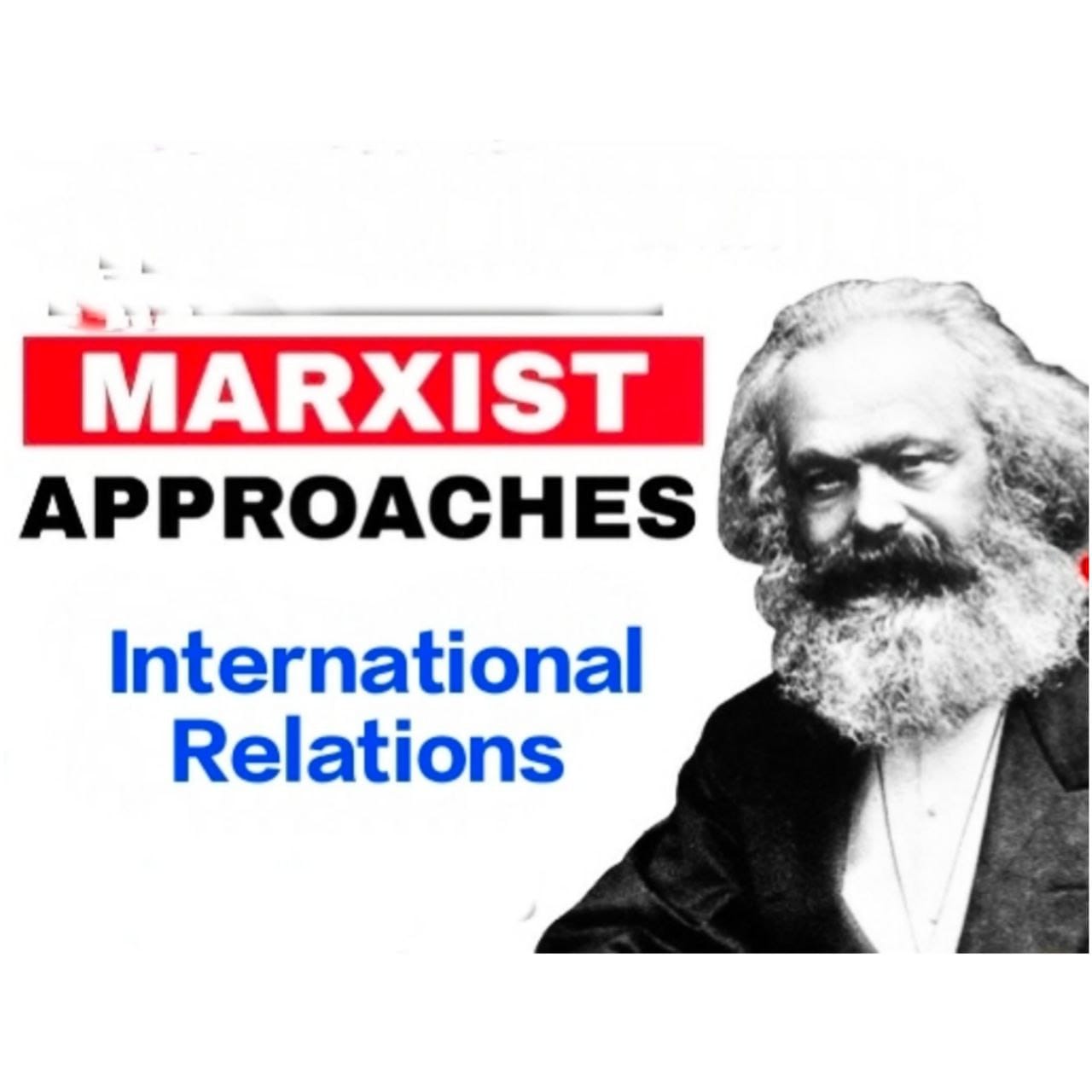Marxian Approach in International Relations
The Marxian approach to international relations is a critical theoretical framework that focuses on the role of economic structures, particularly capitalism, in shaping global politics. Rooted in the ideas of Karl Marx and Friedrich Engels, this approach argues that the global capitalist system fundamentally drives the interactions between states, international organizations, and other global actors. Rather than focusing on states or military power, as traditional IR theories like realism do, Marxian theories emphasize the role of class struggle, exploitation, and the economic system in determining international relations.

Key Ideas in Marxian International Relations Theory
- Historical Materialism:
- At the core of the Marxian approach is historical materialism, the idea that material conditions (primarily economic production and class relations) shape the political, social, and ideological structures of societies. Marxists apply this to IR by arguing that the global economy—particularly capitalism—determines the behavior of states and other actors.
- The global system is viewed through the economic base (the mode of production), which influences the political and legal institutions of states, as well as international institutions.
- Class Struggle:
- Marxists emphasize the centrality of class struggle in international relations. They argue that the global system reflects the interests of the bourgeoisie (capitalist class), who control the means of production, while the proletariat (working class) is exploited. This class conflict extends beyond borders, creating a global class struggle.
- Marxian theorists analyze how international politics, conflicts, and policies serve the interests of the capitalist class, perpetuating global inequalities and the exploitation of the working class, particularly in the developing world.
- Imperialism and Capitalist Expansion:
- A key concept in Marxian IR is imperialism, which refers to the expansion of capitalist states into other territories in search of new markets, resources, and labor to maintain and expand their economic system. According to Vladimir Lenin’s theory of imperialism, imperialism represents the highest stage of capitalism, where capital is exported to avoid economic crises at home.
- This expansion leads to the exploitation of colonized or economically weaker countries (the Global South) by wealthier, industrialized countries (the Global North), reinforcing global inequalities and maintaining the dominance of capitalist states.
- World-System Theory:
- Immanuel Wallerstein’s world-system theory is a Marxist-inspired framework that divides the world into a core, semi-periphery, and periphery. Core countries are wealthy, industrialized nations that dominate global production and trade. Peripheral countries are poorer, less industrialized nations that provide raw materials and cheap labor to the core, while semi-peripheral countries fall somewhere in between.
- This global capitalist system creates a hierarchy where core countries exploit peripheral countries, leading to uneven development and structural inequality in the international system. This reinforces the dependency of poorer nations on wealthier ones and perpetuates global economic disparities.
- Global Capitalism and Economic Exploitation:
- Marxists argue that the driving force behind international relations is global capitalism, which prioritizes the accumulation of capital and profits over social well-being. This leads to the exploitation of both people and resources across national borders.
- Multinational corporations (MNCs), international financial institutions (IFIs) like the World Bank and IMF, and global trade organizations are seen as instruments of global capitalism that perpetuate the interests of the wealthy capitalist class at the expense of workers and marginalized groups in both developed and developing countries.
- Global Inequality:
- The Marxian approach highlights the role of global inequality in shaping international relations. Capitalism creates a system where wealth and resources are concentrated in the hands of a few, while the majority of the global population remains impoverished.
- The global South—composed largely of developing countries—is economically dependent on the global North for capital, technology, and markets. This dependence reinforces global inequalities and keeps poorer nations locked in a subordinate position within the global capitalist system.
- Economic Determinism:
- Marxian IR theorists emphasize economic determinism, the idea that economic structures determine political and social relations. In the international system, this means that state behavior, international conflicts, and alliances are primarily driven by economic interests rather than ideology, security concerns, or morality.
- For example, wars and international interventions are often understood as efforts to protect or expand capitalist interests, such as securing access to markets or resources, rather than being motivated purely by political or ethical concerns.
- Critique of International Institutions:
- Marxists critique international institutions such as the IMF, World Bank, and WTO as tools that enforce the rules of the global capitalist system. These institutions are seen as mechanisms for the wealthier countries to impose neoliberal economic policies on developing countries, which often leads to greater inequality and economic hardship for the poor.
- Marxist IR theorists argue that these institutions serve the interests of the global elite by promoting free-market policies, privatization, and deregulation, all of which benefit multinational corporations and capitalist states while further impoverishing the global South.
- Revolutionary Change:
- Marxist IR theorists believe that only revolutionary change can transform the global capitalist system. The inequalities and injustices inherent in capitalism, both within and between states, can only be overcome through the overthrow of capitalist systems and the establishment of socialist or communist structures that prioritize the welfare of all people.
- This revolutionary change is seen as necessary to address the structural inequalities that global capitalism creates and to establish a more just and equitable world system.
- Transnational Class Solidarity:
- A unique aspect of the Marxian approach is the call for transnational class solidarity. Marxists argue that the working class across the world shares a common interest in challenging the capitalist system that exploits them, regardless of national borders.
- Instead of seeing international relations as a competition between states, Marxian theorists view it as a struggle between the global capitalist class and the global working class. This leads to calls for workers of all nations to unite against the capitalist elite and fight for a global socialist order.
Key Marxian Thinkers in International Relations
- Karl Marx and Friedrich Engels :

- The foundational figures whose critique of capitalism and class struggle provides the basis for Marxian approaches in international relations. Their works, such as “The Communist Manifesto”, emphasize the global nature of capitalism and its role in shaping social and political structures.
- Vladimir Lenin :

- Lenin extended Marx’s theories by focusing on imperialism as the highest stage of capitalism. In his work “Imperialism, the Highest Stage of Capitalism”, he argued that capitalist states expand abroad to find new markets and avoid economic crises, leading to global exploitation and inequality.
- Immanuel Wallerstein :

- Wallerstein developed world-system theory, which describes how capitalism creates a global hierarchy of core, semi-peripheral, and peripheral states, with wealthier nations exploiting poorer ones. His work focuses on how global capitalism produces and perpetuates systemic inequality.
Conclusion
The Marxian approach to international relations offers a critical perspective that focuses on the economic foundations of global politics, particularly the exploitative nature of capitalism. Unlike traditional theories that emphasize the role of states, sovereignty, and military power, Marxian IR focuses on class relations, economic exploitation, and global inequality. It critiques capitalism as a system that benefits a small global elite at the expense of the majority and highlights the need for revolutionary change to create a more equitable international system. This approach remains influential in critical IR scholarship and provides a powerful lens for understanding the economic drivers behind global political dynamics.

